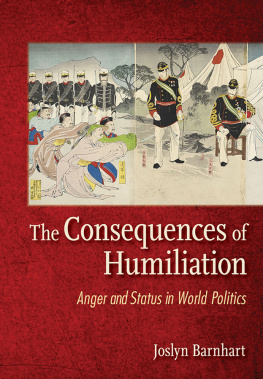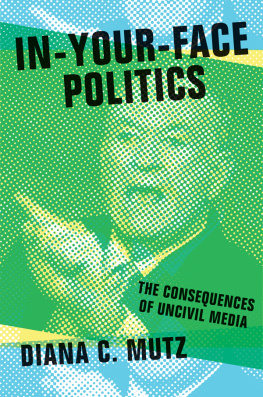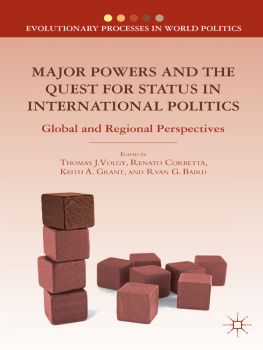Introduction
Political references to national humiliation span time and place, often uttered in conjunction with predictions of violence. In 1925, Adolf Hitler, for instance, infamously decried the inhuman barbarity of the arbitrary dictates of the Treaty of Versailles, a treaty he deemed an instrument of blackmail and shameful humiliation. He presciently warned that the sadist cruelty of the treaty could, in the right hands, be used to arouse national sentiment to its highest pitch such that the souls of sixty million Germans would be aflame with a feeling of rage and a spirit of dauntless resistance.
In 1871, the British Lord Salisbury had similarly predicted that French humiliation engendered by the outcome of the Franco-Prussian War would have lasting consequences on French foreign policy. The loss of the French provinces of Alsace and Lorraine would, he argued, serve as a constant memorial of [French] humiliation, pushing the French toward renewed aggression against Germany. The desire to expunge the humiliation of the lost French provinces remained a prominent focus within French political rhetoric up until the eve of World War I and the provinces eventual return.
Past humiliating events have also been offered as an explanation for revisionist foreign policies. In arguing for Irans right to possess nuclear weapons, for
These, and countless other, references by decision makers suggest that national and group-based humiliation can have a broad, significant, and lasting impact on international behavior. What is the exact nature of this effect? This book shows that Germanys catastrophic reaction to humiliation engendered by the outcome of World War I was not an anomaly but was representative of a broader pattern of international behavior in which states that have experienced certain humiliating events are more likely to engage in international aggression and intentionally defiant foreign policies. Such states will be more apt to pursue territorial conquest, to intervene in the affairs of other states, to engage in diplomatic hostility and verbal discord, and to pursue advanced weaponry and other symbols of national resurgence. Humiliated states engage in these behaviors because these acts define high international status and because participating in them enables those who identify with the state to overcome humiliation and to thereby regain a sense of collective efficacy and authority. Furthermore, the acts promise to bolster the image of the state in the eyes of others because they demonstrate the states distinctive capabilities as well as its intention to restore prior status.
Simply establishing the relationship between national humiliation and aggressive, status-seeking behaviors leaves many important questions about the role of national humiliation in international relations unanswered. I address three specific questions about the role of national humiliation in international politics in detail: What types of international events do we expect to engender the greatest sense of national humiliation? How exactly do we expect particularly humiliating international events to shape the foreign policies of states and how should we expect these responses to change over time? And under what conditions is humiliation-fueled aggression most likely to occur?
The Books Argument in Brief
The historical and contemporary cases mentioned above point to numerous potential sources of national humiliation. French humiliation stemmed in part from Frances unexpected defeat by Prussia in 1871 but also from the loss of French heartland territory, a loss that represented the extent of Frances inability to successfully defend its interests and thereby its status as a preeminent world power. Hitler rooted German humiliation not in defeat at the hands of the Allied powers in World War I but in the post-war treaty, which he believed relegated Germany to permanent second-rate status. For Iranian diplomats, humiliation was engendered by direct infringement on Iranian sovereignty while for Russian leaders, the source of humiliation was in the Wests disrespect for Russias prior sphere of influence.
What do these seemingly disparate experiences have in common? The answer to this question is rooted in the nature of humiliation. Humiliation is the emotional response to the perceived undeserved decline of ones status in the eyes of others. Humiliation is a complex and negative self-conscious emotion, which combines the sense that one has been mistreated with a painful sense of self-doubt and helplessness in the face of this injustice. A state of national humiliation arises when individuals who identify as members of the state experience humiliation as the overwhelming emotional response to an international event, which they believe has undeservedly threatened the states image on the world stage.
This definition enables us to make a priori assumptions about the types of international events that are likely to inflict the deepest sense of national humiliation and to have the most significant effects on international behavior. I argue that two broad types of humiliating events exist. The first type involves the failure of the state to live up to international expectations of how it should perform, given its perceived status. Failure of this sort can take the form of rapid defeat to a state with lesser military capability or the involuntary loss of homeland territory. Such public failures are often perceived as undeserved threats to the status of the state and thereby serve as deep sources of collective outrage and impotence. The second type of humiliating event involves the treatment of the state by others. States whose rights and expected privileges are denied by others are also likely to perceive that the states image in the eyes of others has been unfairly undermined by ill-intended others. Allowing others to disrespect ones sovereignty or to interfere in ones sphere of influence can generate common knowledge that a state is undeserving of high status while simultaneously engendering a pervasive and potentially constraining sense of powerlessness within the disrespected state.
How exactly should we expect the behavior of states that have experienced such events to differ from those that have not? Above, I suggested that humiliated states are more likely to engage in several different foreign policy behaviors intended to bolster the image of the state in its eyes and the eyes of others. These behaviors include, for instance, diplomatic opposition, the pursuit of symbols of high status such as nuclear weapons or colonies abroad, and the use of force against the state responsible for ones humiliation or against third-party states that were not involved in the original humiliating event. Which of these numerous assertive strategies will humiliated states pursue?
The answer to this question depends in part on the capabilities of the state. Humiliated states seek to reestablish their status in the eyes of others. To do this, they engage in actions that define the status they seek to hold. Great powers might project their power and maintain extensive spheres of influence abroad. Those states seeking to assert their regional power status might engage in similar status-seeking actions, but would be expected to do so over more circumscribed areas and for less sustained periods. Humiliated states that already hold low status, by contrast, have fewer options for restoring their sense of efficacy.
The behavior of all humiliated states, including great powers, will be constrained by the need for success. Humiliation, like anger, involves a sense of injustice. Humiliation is distinct from anger in that humiliated parties question their ability to assert themselves and to successfully defend their image in the eyes of others. Overcoming humiliation requires the elimination of self-doubt. Humiliated states are motivated by the desire to reestablish both their confidence as well as their image in the eyes of others, and they will seek to prove to themselves and others that they are effective actors on the world stage. They will generally avoid rash actions and will prioritize favorable outcomes. Thus, though revenge might offer the most satisfying path toward status renewal, states may avoid revanchism if they believe repeated humiliation is likely. States that possess sufficient capabilities are more likely to bolster their image in other ways through the projection of power abroad at the expense of weaker, third-party states. Such acts demonstrate the states distinctive capabilities as well as its intention to be viewed as a high status state. Most important, such acts serve to demonstrate these qualities to those within the state itself, thereby bolstering confidence in the state.













